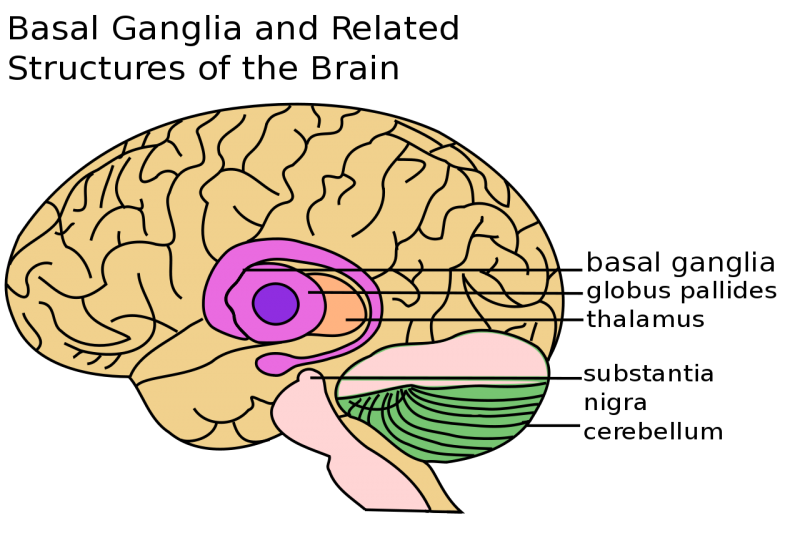Cortico Basal Degeneration (CBD)
Introduction
Cortico Basal Degeneration (CBD) is, like PSP, a Parkinson’s-plus syndrome, meaning that the diseases have some of the symptoms of Parkinson's Disease in common.
It is a degenerative brain disease, affecting people between the age of 50 and 70. There are similarities to PSP, with similar nerve cell damage and build up of tau protein in the brain. However, the clinical picture is very different.
CBD occurs less often than PSP. It often happens that people get the erroneous diagnosis of Parkinson’s disease or a stroke.
Symptoms
Like with Parkinson’s disease slowing of movements, stiffness, tremors, falls, and shuffling of the feet can be seen. Like with Parkinson’s disease, and unlike PSP, problems with movements occur on one side of the body, such as stiffness, shaking, or loss of control.
Symptoms (besides the Parkinson symptoms)
- A type of language difficulty in understanding grammar and speaking in full sentences can develop. This can be the first symptom.
- Changes in memory and thinking.
- Changes in behavior or language.
- Loss of inhibition. Patients may act or speak rudely or crudely, or seem to lose empathy for others.
- Difficulty with attention and concentration.
Cause
CBD is named after the parts of the brain that are damaged, the cortex, which is the outer part of the brain, and the basal ganglia, which are deep within the brain.

Treatment
There are currently no drugs that are proven to reverse the damage in either PSP or CBD. However, some medications can be helpful for symptoms control in these conditions. For some people, the movement problems get less by Parkinson Disease medication, such as carbidopa-levodopa, but in general, these are less effective for CBD of PSP than for Parkinson Disease.
For people with severe stiffness, muscle relaxants and Botox may be useful. Depression and motivation problems may respond to antidepressants. In severe cases, antipsychotic medications can help treat agitation, but these should only be used when absolutely needed.
Non-medical, supportive treatment for problems with behavior, swallowing, speech and communication, falls and mobility are available. Many people with PSP or CBD benefit immensely from occupational therapy, physical therapy, and speech therapy.